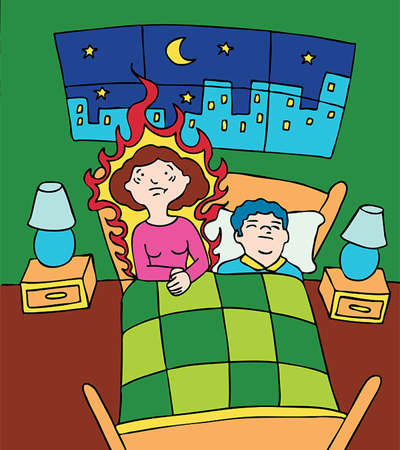What is Perimenopause?

Menopause transition
Perimenopause, sometimes referred to as menopause transition, is the point in the reproductive life of a woman that starts a few years prior to menopause and the ovaries slowly produce less and less estrogen. This will normally start during the 40s but some women have started as early as in their 30s.
Perimenopause will last until menopause begins, which is when the ovaries completely quit releasing eggs. During the last couple of years of perimenopause the decline in estrogen begins to speed up, which in turn will cause women to begin to experience symptoms of menopause. Normally a woman will go through perimenopause for about 4 years but some might only go for a few months or can keep going for 10 years. It all depends on the woman. Once a woman has gone for 12 months without having an menstrual cycle then they have hit menopause and perimenopause is over.
During perimenopause you will normally begin to feel symptoms such as:
- Tenderness in the breasts
- Hot flashes
- Lower sex drive
- Vaginal Dryness
- Fatigue
- Irregular periods
- Leaking urine when you sneeze or cough
- Needing to urinate more often
- Sleeping difficulty
- Moodiness
During perimenopause it is very common for your periods to become irregular. However, there are other conditions that can cause your periods to become irregular. If you suffer from any of these then it is important to visit your doctor to make sure there is no underlying condition that you need to have treated. If your periods are extremely heavy or last longer than normal, or if you experience spotting in between your periods or show spotting after intercourse, or your periods are closer together, you should see a physician.
In most cases your doctor can prescribe low dose birth control pills to help regulate your periods again and to help relieve the severity of night sweats and hot flashes. They might also show you ways that you can naturally relieve your perimenopause symptoms such as changing your diet, exercising more, eating right and taking vitamin supplements.
Even during perimenopause it is important to be careful during sexual intercourse because you can still get pregnant during this time. Continue to use protection up until you have reached menopause which is after you have not had a menstrual cycle for a full twelve months. Talk with your doctor about all of the options that are available to you during perimenopause to help your symptoms become less frequent and less severe. There are medications you can take and natural treatments that you can count on to help to keep some of those symptoms either at bay or find that they are reduced. Before starting any type of treatment, talk to your doctor and make sure you have chosen the right one for you.





